When it comes to selecting the right cutting board for a kitchen especially for the fast-paced environment of professional kitchens the debate over wood cutting boards versus bamboo cutting boards is heated. As a kitchen professional, finding the perfect balance between durability, hygiene, and ease of maintenance is essential. So, which is better wood or bamboo cutting board? While both materials have their merits, understanding their differences can help you make an informed, functional, and safe choice.
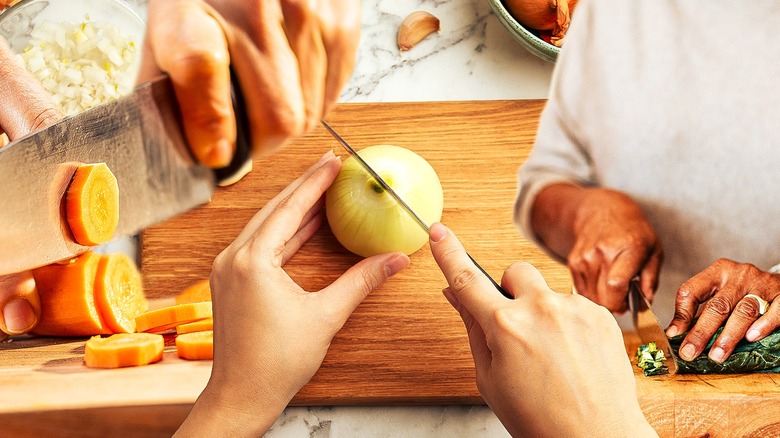
Why Choosing the Right Cutting Board Matters
Cutting boards are more than kitchen accessories. They protect countertops, extend the lifespan of knives, and ensure a hygienic food prep environment. Kitchen professionals frequently handle foods like raw meats, fruits, and vegetables, where contamination risks are high. The cutting board you choose should not only deliver on practicality but also stand up to the unique tasks found in commercial kitchens.
The Rising Debate: Bamboo vs. Wood
The conversation around which is better wood or bamboo cutting board often starts with their key material characteristics. Wood has been the go-to option for decades, while bamboo cutting boards emerged as a popular eco-conscious alternative. To offer a clear understanding, let's dive into specific factors that matter most to kitchen professionals.
Durability: Who Stands the Test of Time?
Wooden Cutting Boards
Wood cutting boards, especially those made from hardwood species like maple, walnut, or cherry, are known for their long-lasting durability. Hardwood boards tend to handle frequent chopping motions and impacts without showing significant wear and tear. Additionally, their composition is gentler on knives, avoiding the rapid dulling of blades, which is crucial in professional kitchens.
Bamboo Cutting Boards
Bamboo is technically a grass and not a hardwood, yet it boasts a similar level of hardness to maple. Bamboo's densely packed fibers make bamboo cutting boards highly resistant to scratches and cuts. However, this hardness could mean that knives wear down more quickly when compared to usage on wooden boards. For chefs constantly cutting and slicing, this could require more frequent knife sharpening.
Hygiene and Bacteria Resistance
Wood
Wood cutting boards are naturally porous but surprisingly effective in trapping moisture and bacteria within their fibers. Research shows that bacteria trapped inside wooden surfaces often die over time due to the lack of moisture they need to survive (source). Furthermore, hardwoods like maple contain natural antimicrobial properties, minimizing contamination risks in a professional setting.
Bamboo
Bamboo is more water-resistant than wood, which means it absorbs less liquid and dries faster. This property makes bamboo cutting boards ideal for minimizing bacteria buildup, particularly for fast-paced restaurant environments where time is valuable. Despite its water-resistant score, bamboo cutting boards still need regular cleaning to prevent surface contamination from lingering after food prep.
Environmental Impact
Why Professionals Opt for Bamboo
Bamboo cutting boards hold the upper hand in environmental sustainability. Bamboo regenerates quickly, often reaching full maturity within three to five years, making it a renewable and eco-friendly choice. For environmentally conscious kitchens, bamboo is an obvious choice.
The Sustainability of Wood
Although wood does not grow as quickly as bamboo, responsibly sourced, FSC-certified wooden cutting boards still offer an environmentally sound option. Wood is long-lasting and can often be refinished by sanding, which extends the life of the board.
Maintenance and Care
Wood: A Long-Term Investment
Wooden boards are relatively easy to maintain when properly cared for. Regular oiling with food-safe mineral oil keeps the surface hydrated, preventing cracks and warping. For stubborn stains or odors, sanding down the surface can bring your wood board back to life. Learn how to maintain it properly by checking out this guide on fixing a warped cutting board.
Bamboo: Simple and Streamlined
Bamboo cutting boards require less maintenance compared to wood. While occasional oiling helps prevent dryness, their natural density and water resistance make them low-maintenance options for busy professionals. However, because they dont tolerate excessive moisture, avoid soaking bamboo boards in water for extended periods.
Aesthetic Appeal and Personal Preference
Both materials bring visual appeal to the table. Wooden cutting boards, with their deep grains and smooth finishes, are versatile and timeless additions to a kitchen. Meanwhile, bamboo cutting boards have a lighter, more uniform appearance, favored by modern and minimalist chefs. Personal style and kitchen aesthetic often influence this decision.
Cost Considerations
For many culinary professionals, budget plays a significant role in deciding which is better wood or bamboo cutting board. Wooden boards, particularly those made from premium hardwoods, tend to be more expensive but offer a longer lifespan. Bamboo options are generally more affordable, making them a great choice for those balancing quality with cost-effectiveness.
Final Verdict: Which Cutting Board Is Right for Pros?
So, which is better wood or bamboo cutting board? The answer often comes down to the demands of your kitchen, personal preferences, and specific use cases. While wood boards offer long-term durability and superior knife-friendliness, bamboo wins in sustainability and affordability. Professionals handling delicate knife work may lean toward wood, while those in fast-paced kitchens may prefer bamboos low-maintenance appeal. For more professional guidance, see this expert insight on what board chefs like Gordon Ramsay use.
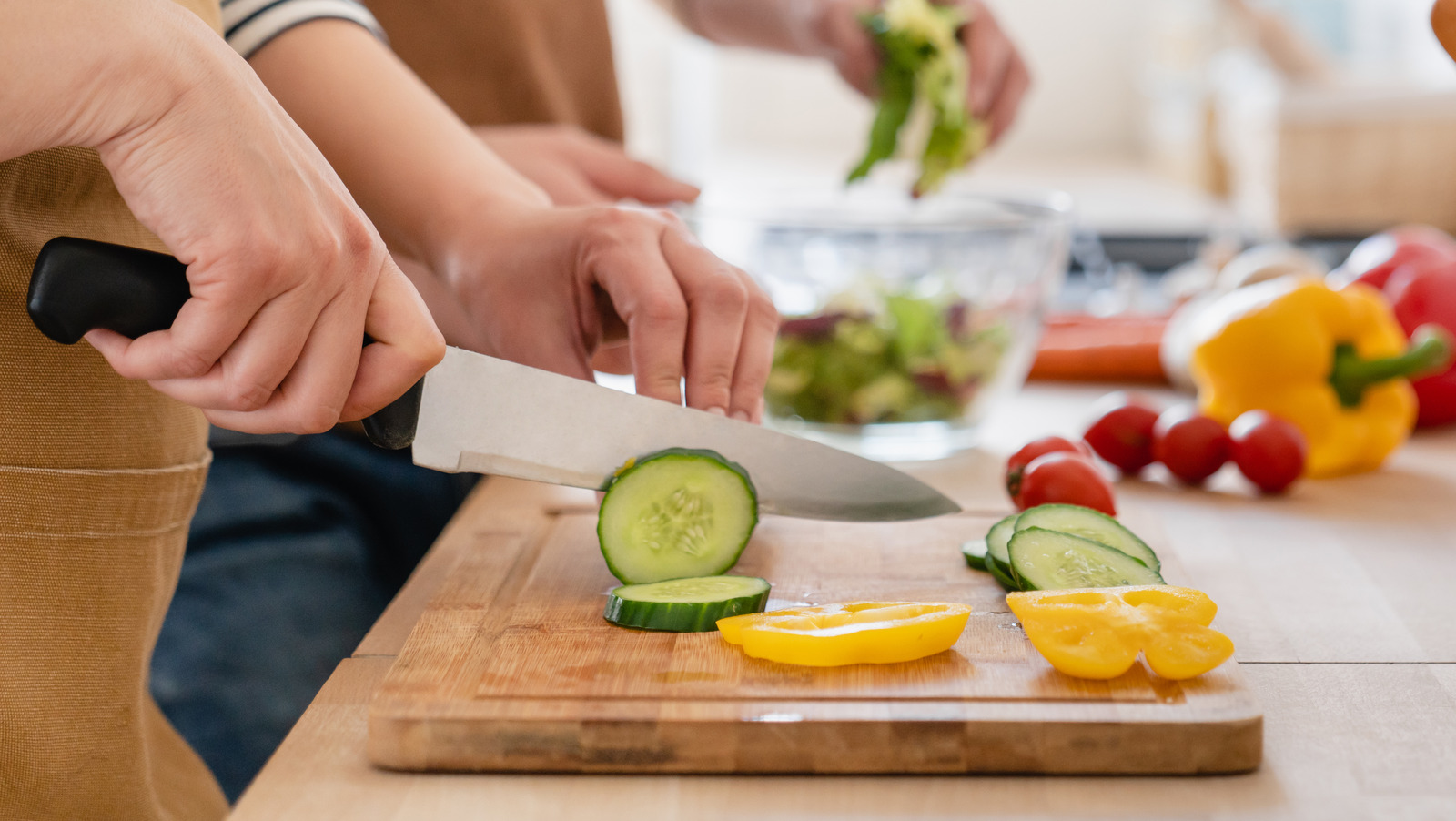
FAQs
Can bamboo cutting boards damage knives?
Yes, bamboos hardness can cause knives to dull more quickly compared to softer wooden cutting boards.
How often should I oil wooden cutting boards?
Wooden cutting boards should be oiled monthly with food-safe mineral oil to maintain durability and prevent cracking.
Is bamboo really better for the environment?
Yes, bamboo is a renewable resource that regenerates quickly, making it an eco-friendly choice compared to wood.
This article contains affiliate links. We may earn a commission at no extra cost to you.

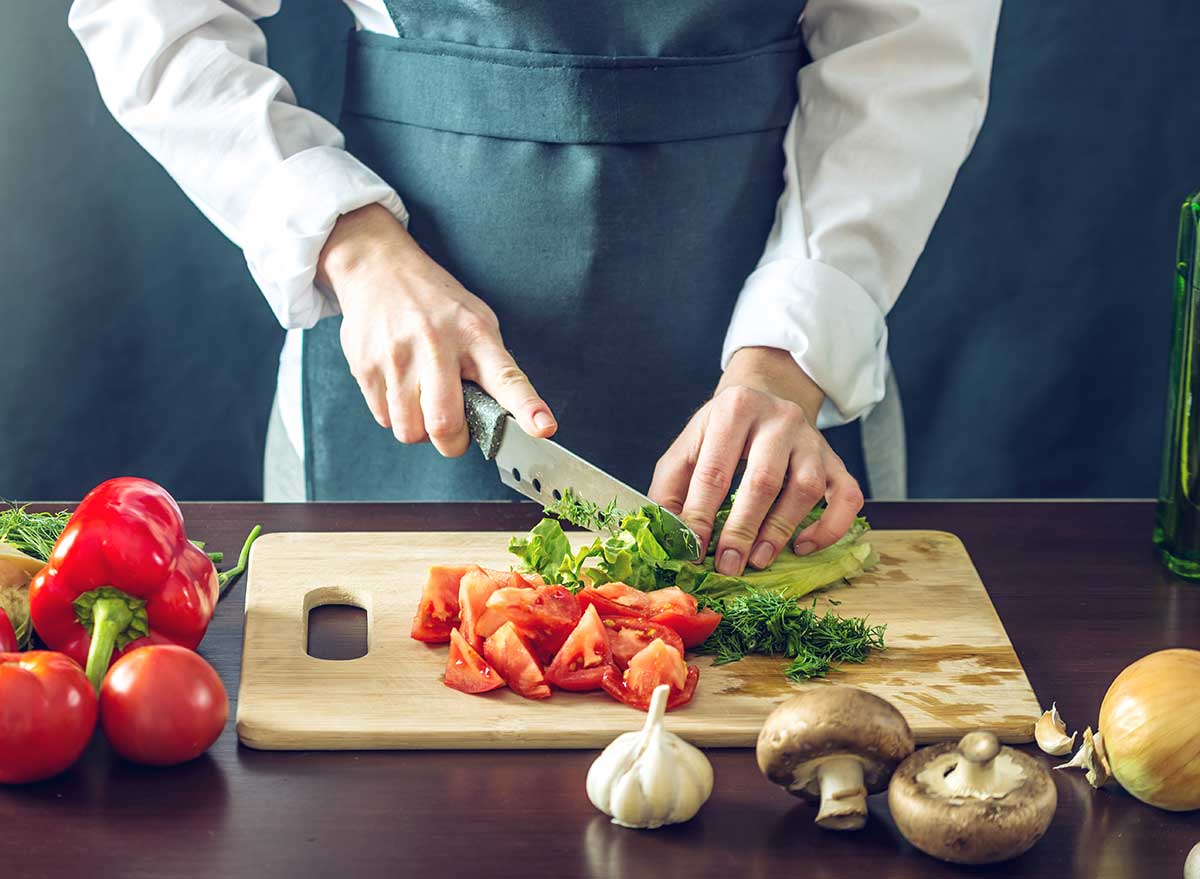


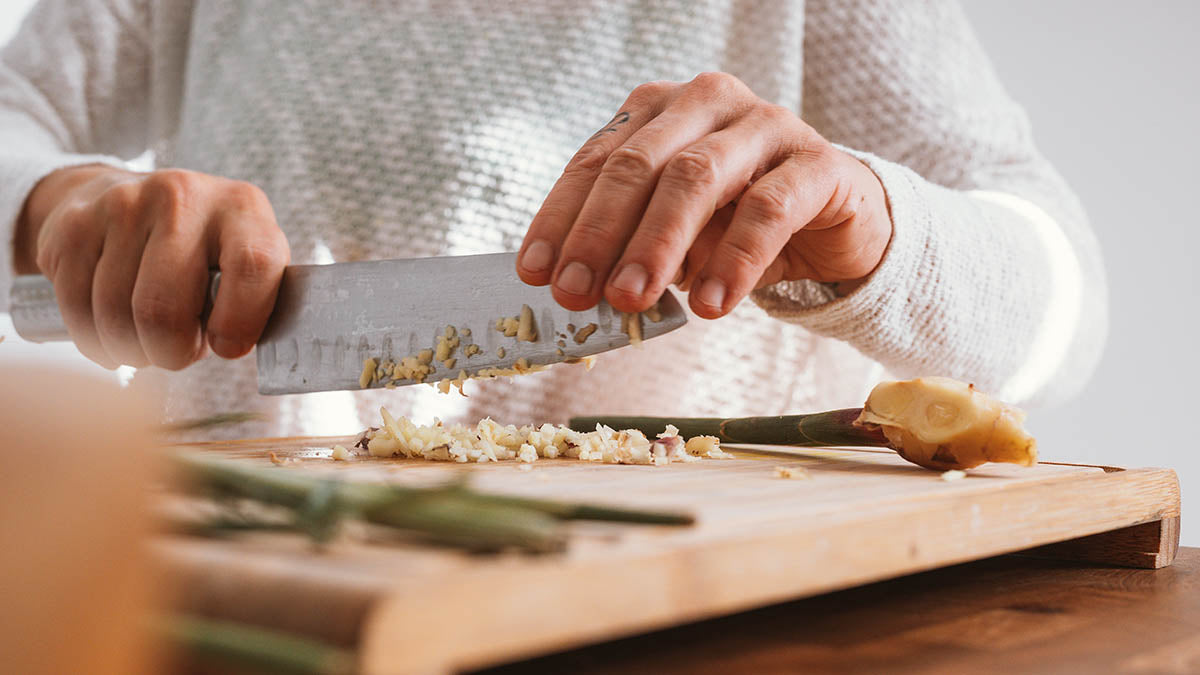
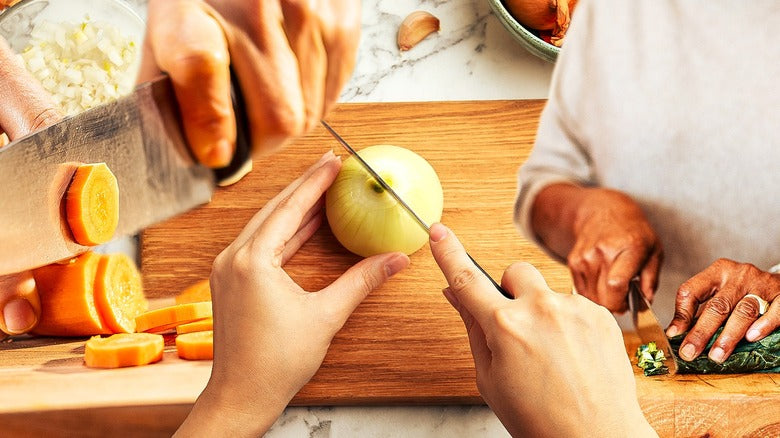
Leave a comment
This site is protected by hCaptcha and the hCaptcha Privacy Policy and Terms of Service apply.